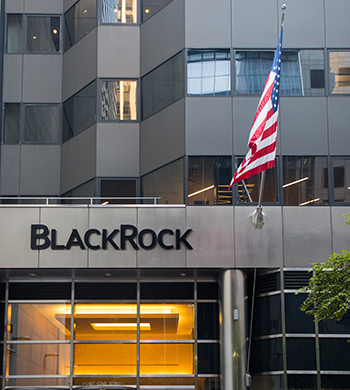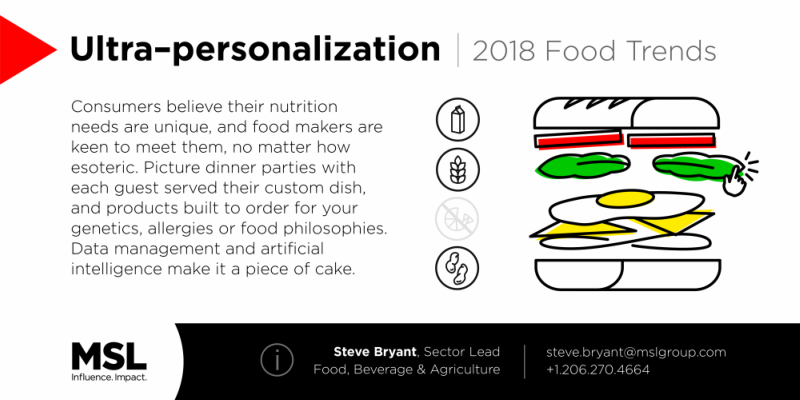MSL 26 Jan 2017 // 5:35PM GMT

Over four days there are over 400 sessions on the official World Economic Forum Annual Summit program. In addition, there are a multitude of breakfasts, lunches and dinners with speakers and panels. And then the myriad conversations one shares with some of the 3000 plus delegates. No person can truly summarize the event since one only gets to experience a sliver of what is possible.
Keeping this reality in mind, here are some of the key themes and takeaways from my perspective.
1.Middle Class Driven Populism is and will be the driving force in Western Politics: A combination of a) liberal governments who moved money to the less well to do b) de-regulation and weakening of unions which drove money to owners of capital and c) globalization which moved opportunities to Asian and Southern hemispheres all coming at the time of minuscule economic growth has left the Middle Class in most nations in the West wondering who is on their side?
Globalization on the whole has been dramatically good for the world, helping lift a billion people out of poverty, reducing prices, and bringing new opportunities. This is true on the whole, but for individuals who do not have the right skills or find their job outsourced this is a calamity. As a result, huge swaths of the voting public in the US, UK, France and other countries are voting against globalization and for national interests first.
The World Economic Forum’s goal is to “improve the state of the world” but individuals do not live in the broad world but in a particular area or country and many things that improve the overall world, hurt particular countries and localities and it is this oversight that has made people question globalization and the supposedly stateless “Davos Man”
For the next few years we can anticipate at best a modified form of globalization where the impact on the middle class and local economies will be the first filter that both politicians and business leaders will be forced to contend with. Donald Trump’s “America First” mantra will be repeated in many other places where elections are held as the middle class revolt against what they believe is a system rigged against them.
2.Artificial Intelligence (Cognitive Computing) has arrived and will add to the disruption and create a huge need for skill training:
The concept of AI has been around for over 50 years but it is only now with the advent of deep learning made possible by huge amounts of data, cloud based computing and low cost storage that pattern, image and voice recognition has reached a point where their capability is growing exponentially.
If you use Google Translate you will find that in the last few months it has advanced more than it did since it was launched years ago due to AI. From Amazon Echo to Watson Cognitive Computing, AI is the new frontier of technology and it will drive a huge increase in automation which will impact jobs as much as off shoring did.
This reality caused every AI conversation in Davos to constantly focus on the impact on jobs. IBM’s CEO recently published an internal manifesto on AI which focused on terms such as purpose and transparency and noted her belief that IBM wants to augment versus replace jobs. For instance, IBM Watson today which has been trained on 18 Million documents helps doctors make better decisions for Cancer patients because only a machine can imbibe the 8000 new papers being published daily in Oncology.
Major questions arise on AI, where the machine learns on data, as to who trained the machine and what data was used. Just like you and I come out differently depending on what our experiences have been an AI machine will reason differently depending on how it was trained!
Can an AI machine make a blue collar worker now do white collar work by helping them up-skill? Or will they lose their jobs? Will an AI trained person be a “new collar” worker? Long before driverless cars, it is these reasoning/seeing/speaking computers that all of us will have to be contended with.
Therefore even after attempting to keeping the immigrants out and putting up barriers to trade, we will find that computing progress will challenge employment and will require a major investment in skill development to keep people working. Education will be critical but a new type of hands on skill versus four-year college will be required.
3. As the world gets increasingly connected we are also sometimes getting more disconnected: Today over 3 billion people are connected with over 1.5 billion people on Facebook alone. But oddly a combination of people seeking out people like themselves, algorithms that maximize engagement by showing us things we agree with has actually left us disconnected from ideas, individuals and initiatives that do not “fit” our lives. Thus we float in our little bubbles, warm in our soapy self-loving embrace, while occasionally flaming and pricking other bubbles that float by which are not aligned with our way of thinking.
People now look to friends and family and people like themselves for news, opinion and expertise. We can make fun of some of our “post-truth” politicians but if we spend our time in our own self-reinforcing chambers are we not also “post-fact” or “post-truth”?
And it is here where I found the folks at Davos were behaving with trepidation and uncertainty. For instance, given the huge concentration of wealth or revenue in a sliver of companies and people (10 percent of the companies drive 80 percent of profits, 8 people have the same wealth as the bottom 3.5 billion, and technology is actually making more wealth go to fewer people with in many tech industries one company taking it all) there was very little real discussion on any painful steps that would be needed to be taken to ensure that those left behind and angry do not explode. No talk of new regulations or laws. No talk of taxes. No talk of re-distribution. Apparently providing training (with no details of even how this was to be done) and some light self-regulation will be enough.
The reason that at Davos there was uncertainty because the folks know that society is changing in ways where an unmitigated quest of globalization, improving the state of the world at the expense of the state of a country and pursuing stock holder return/wealth creation alone, no longer resonates or will be accepted.
It is the reason many companies are leading with the “Responsible and Responsive” focus ensuring that in addition to CSR activities they truly help people’s lives get better. The soft edges of a companies will become competitive edges.
4. China Rises: For the first time at Davos the President of China participated. In a 30-minute talk President Xi built a case for globalization and for being protective of the environment. Without mentioning the US or Donald Trump he worked to show that China was ready to take the mantle of world leader due to its openness and solidity.
In many other panels various Chinese leaders from Jack Ma of Alibaba and more spoke of how they would be enabling jobs, importing goods as they moved to a consumer driven society, focus on soft power through entertainment and much more. There is a clear belief and feeling among the Chinese that this is now their time as EU grapples with its self-identity and Brexit and the US figures out Trump. Disengaging from the world at this time is not really an option.
While there are lots of challenges that China itself grapples with from its heated leveraged real estate market, environmental issues, capital/talent flight and the role of the Communist Party, it feels stronger than ever before because maybe the West seems more confused than ever before.
5.Companies are going to have to change their behavior and their structure: Companies are struggling to integrate the short term reality of markets looking for results and the need to invest for the long term to remain relevant and re-invent themselves. Most CEO’s are smart enough to know that they have to find a balance between these two extremes but worry that they are more biased towards the short and rather the long term and therefore are likely seeding their own self-disruption. The markets almost seem to look at established firms as cash cows that they need to milk while moving their grass (green dollars) to newer firms that have been designed for the mobile connected world.
Bain Consulting put out a study noting that in an age of Amazon Web Services and other platforms companies will quickly have to decide are they platform companies? Outsourcings specialists? Product companies? or Service companies? Being all things to all people will no longer work. Focus on one and connect to the others to deliver the solution.
Bain Consulting also re-iterated something everybody in business knows which is that the next generation of talent is not looking to climb a hierarchy but are looking for purpose, impact, experience and skills and do not want to be managed but inspired.
Finally, speed is a competitive advantage and therefore companies are going to have to be decisive with the yes and no and then decentralized with empowered teams to make things happen.
Organizations and leaders need to re-imagine themselves in this connected age.
Net, we need to go from being controlling, centralized, short term oriented managers to empowering, federated, long term inspirers.
6.Trust: If there is one overall theme from this Davos it is trust. How to get it? How to keep it? How to regain it?
Can our politicians be trusted to look after the people who vote for them or will they look after the people who pay for their campaigns? Will our business leaders think beyond short term profits and global domination and think of the communities they work in and invest in keeping their people relevant and make long term decisions? Can the platforms like Facebook that run black box algorithms and refuse to share their data be trusted with the news and connections and results they show us? Can we really believe that Artificial Intelligence will not come to replace us and the IBM, Amazon, Microsoft, Tencent, Alibaba, Google, Apple and Uber that are driving our future in this area can be trusted with this?
This Davos was clearly one filled with uncertainty and change more than ever before. The themes that I took away (again one person’s perspective based on what I was exposed to) may make one feel pessimistic but we need to keep in mind that the World is better off today than ever before but many people have been left behind and we need to re-think the coming age with inspirational thought, deep feeling and generous sharing of perspectives and the views of different groups as we build an even better future.
And this is something that World Economic Forum does very well and it will adjust to this new reality as all of us will since tomorrow in the long run is always better if we work at it.
7. Implications for Business and Marketing: If there is one theme that business and marketers should focus on is how to be seen as a trusted brand or company. In todays connected world being authentic, purpose driven and transparent is key to gain trust not only among purchasers but also current and potential employees. Thus companies need to have significant programs externally to ensure they are helping communities, that they are careful about where they source from, that they look at things beyond the bottom line and their Brands are aligned with the greater good. In addition, as employees become the key ambassadors for Brands and the talent wars heat up it will be key to constantly communicate, train and connect with employees making plans and senior management accessible.
The AI world will impact marketing in a big way. We already saw at CES that Amazon’s Alexa voice operating system was being incorporated into many products and services from Refrigerators to cars. Voice based search will change the way we manage search. And importantly AI bots will augment CRM. These are all scalable today and AI will be a key platform for marketing. At the same time the augmented capability of AI to up-skill and do things faster than humans will require companies to both up-skill their own people and to consider what jobs should be primarily done by machines. The economic competition and price pressures all companies face will not disappear and AI is one way to increase productivity.
Finally, given the emphasis on data, business really needs to interrogate whether their data programs are as valid and relevant as they can be. Can a company’s data be actually a bubble of delusion as they frame things through their brand or their category versus what people actually want and feel? In an age of AI are they truly utilizing the correct co-relations and algorithms. Most importantly we often choose with our hearts and then use numbers to justify what we just did. In such a world marketer should never forget the emotion and the feeling that makes us human which often overrides logic and rationale.
 By: Rishad Tobaccowala
By: Rishad Tobaccowala
About Rishad Tobaccowala
Rishad Tobaccowala is the Strategy and Growth Officer of Publicis Groupe. He is a member of the Directoire +. In his role, he supports the activities of MSLGROUP – Publicis Groupe’s global public relations and integrated communications agency.


































.jpg)















